During Friday’s Specialty Soya and Grains Alliance annual meeting, the second annual SSGA Alliance Honors were awarded. The Alliance Honors gives the SSGA Executive Committee the opportunity to recognize those who have made significant and sustaining contributions to the U.S. IP industry in 2021. These awards recognize stewardship, as well as advancements in transportation, I.P. and SSGA as an organization.
SSGA Alliance Honor for Advancing SSGA
 Mihiri Mendis, Ph.D., Product Development and Quality Assurance Manager, Richland IFC Inc.; Wahpeton, North Dakota.
Mihiri Mendis, Ph.D., Product Development and Quality Assurance Manager, Richland IFC Inc.; Wahpeton, North Dakota.
Mihiri Mendis receives this year’s Alliance Honor for Advancing SSGA. As a volunteer supporting SSGA in its negotiations with USDA’s Animal Plant Health Inspection Service, Dr. Mendis taught the industry and USDA many things we didn’t know about successful quality plans. She drafted significant new work on behalf of SSGA that convinced APHIS about the professionalism and standards our member companies maintain. Her time, dedication, creativity, and education steered us to make a significant breakthrough in this new program and taught SSGA staff and leaders about the industry they represent. SSGA thanks Dr. Mendis, and Richland IFC for their contribution to SSGA this year.
SSGA Alliance Honor for Advancing IP
 United States Soybean Export Council, Southeast Asia Team; Singapore and regional representatives
United States Soybean Export Council, Southeast Asia Team; Singapore and regional representatives
USSEC’s Southeast Asia team is recognized with the Alliance Honor for Advancing IP. The group has devoted itself to global education and regional marketing as host of the food soybean topic in the U.S. Soy Excellence Centers. The team assisted SSGA with five regional meetings for the Philippines, Indonesia, Malaysia, Vietnam and Thailand that resulted in millions of dollars of new sales by U.S. exporters of soybeans and specialty grains. The USSEC team provided tireless support in educating importers interested in sourcing IP field crops from the United States. And when we say “tireless,” that means working against all obstacles of time, day or night, considering the 12-hour time difference between the U.S. and Singapore and the other countries in the region.
SSGA Alliance Honor for Advancing Transportation
 Darwin Rader, International Sales Manager, Zeeland Farm Services; Michigan and Iowa
Darwin Rader, International Sales Manager, Zeeland Farm Services; Michigan and Iowa
Mr. Rader is recognized with the Alliance Honor for Advancing Transportation. As chair of SSGA’s Competitive Shipping Action Team in 2021, he presided over the team, assisted staff and represented the industry at national and regional events, including the Global Trade Exchange & Specialty Grains Conference this summer in St. Louis. He was giving of his time and expertise, granting media interviews and participating on panels, in meetings, in strategy sessions and more. His voice is a powerful and insightful one in explaining and seeking solutions for the current global supply chain crisis. Mr. Rader always remembers to consider the people working in transportation and has been vocal in sharing the personal cost the past year’s difficulties have had on staff and families as businesses struggle to stay afloat. SSGA thanks Darwin Rader for his courage and conviction.
SSGA Alliance Honor for Stewardship
 Andy Bensend, grower, entrepreneur, AB Farms & AB Farm Services; board member Wisconsin Soybean Marketing Board; Dallas, Wisconsin
Andy Bensend, grower, entrepreneur, AB Farms & AB Farm Services; board member Wisconsin Soybean Marketing Board; Dallas, Wisconsin
Andy Bensend is recognized with Alliance Honor for Stewardship. Mr. Bensend chaired SSGA’s Governance Action team and advocated tirelessly on behalf of premium field crop growers in meetings, presentations, and financial grant applications this year. With his leadership, the governance team oversaw a successful rewrite of SSGA’s bylaws and an update in the organization’s strategy and goals. Mr. Bensend made phone calls, sent emails, and attended meetings that resulted in new financial contributions from members, and he committed his time to finding new members. Mr. Bensend provided staff education, insight, and content to SSGA outreach, ensuring the grower voice is part of the agronomy work we do as we seek ideas and solutions to challenges in the premium field crop industry. SSGA thanks Andy Bensend for his willingness to speak hard truths and advocate for SSGA.
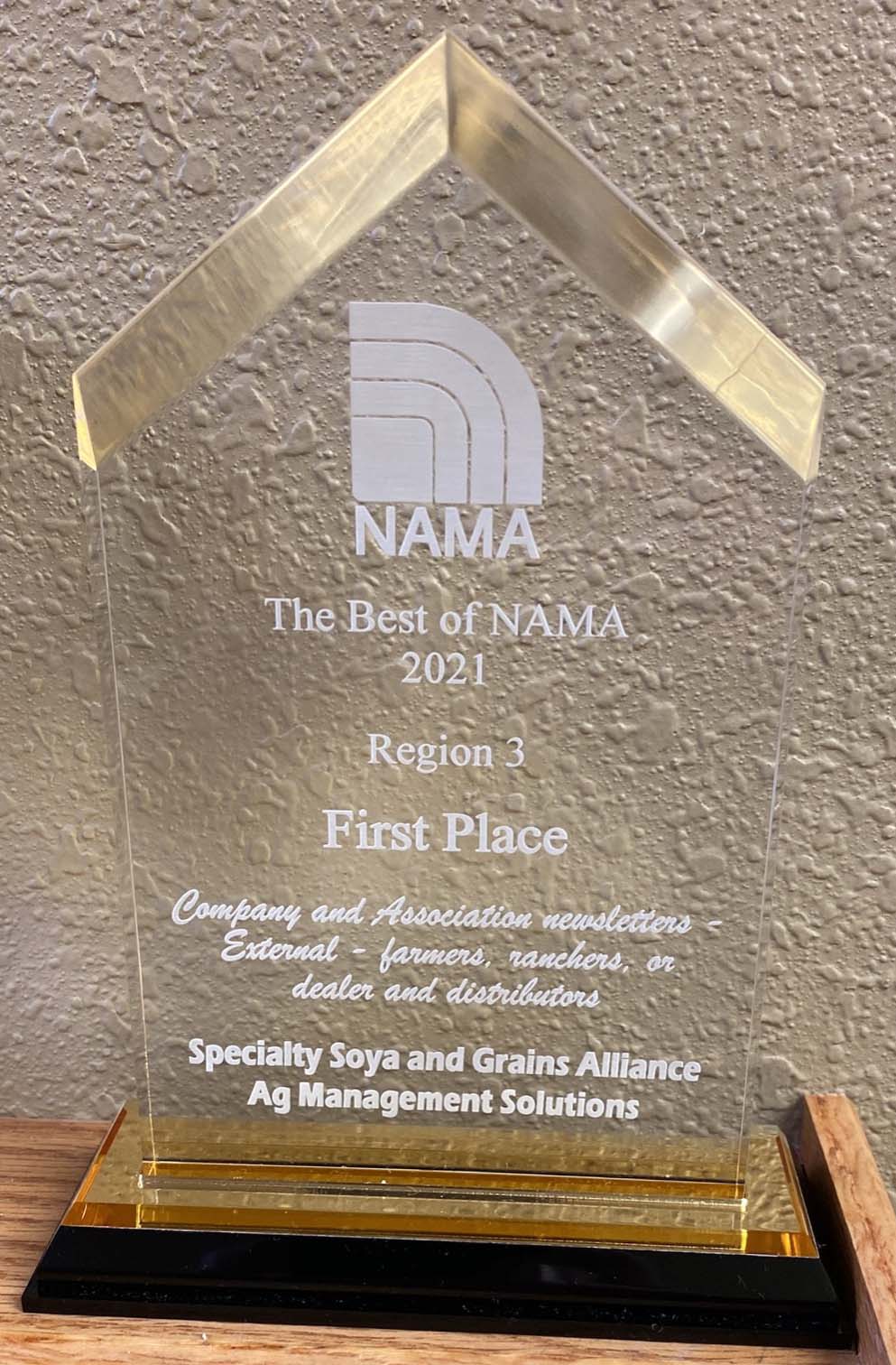 Working with Ag Management Solutions (AMS) in Mankato, Minnesota, SSGA was recognized for its twice-monthly e-newsletter, which received first place in the category of Company and Association Newsletters – External.
Working with Ag Management Solutions (AMS) in Mankato, Minnesota, SSGA was recognized for its twice-monthly e-newsletter, which received first place in the category of Company and Association Newsletters – External.


 United States Soybean Export Council, Southeast Asia Team; Singapore and regional representatives
United States Soybean Export Council, Southeast Asia Team; Singapore and regional representatives Darwin Rader, International Sales Manager, Zeeland Farm Services; Michigan and Iowa
Darwin Rader, International Sales Manager, Zeeland Farm Services; Michigan and Iowa Andy Bensend, grower, entrepreneur, AB Farms & AB Farm Services; board member Wisconsin Soybean Marketing Board; Dallas, Wisconsin
Andy Bensend, grower, entrepreneur, AB Farms & AB Farm Services; board member Wisconsin Soybean Marketing Board; Dallas, Wisconsin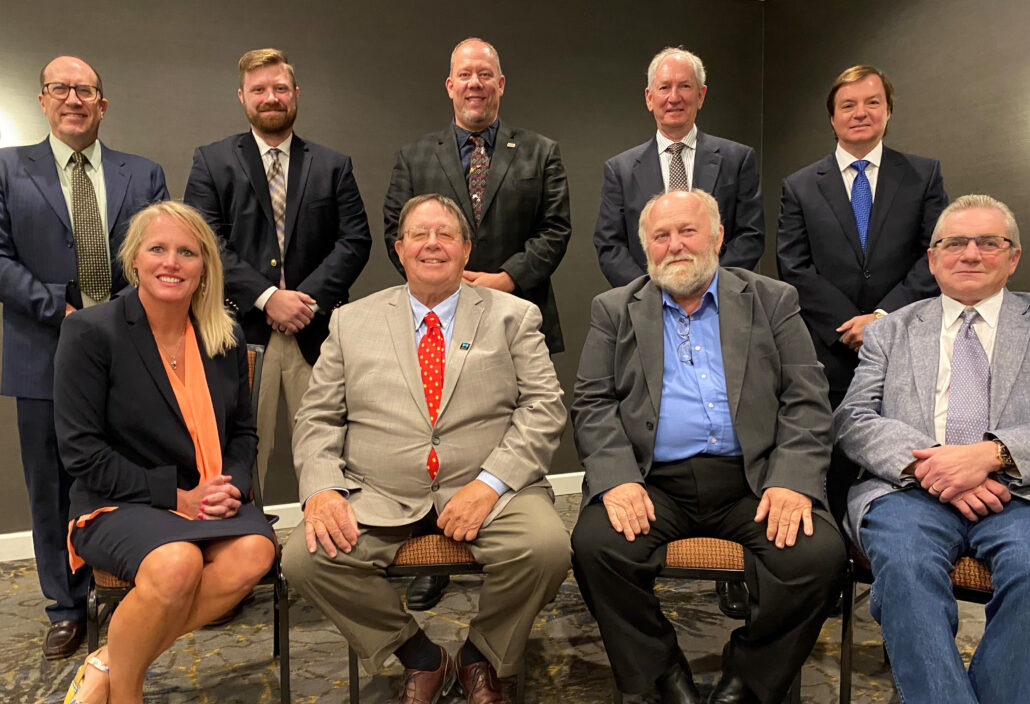
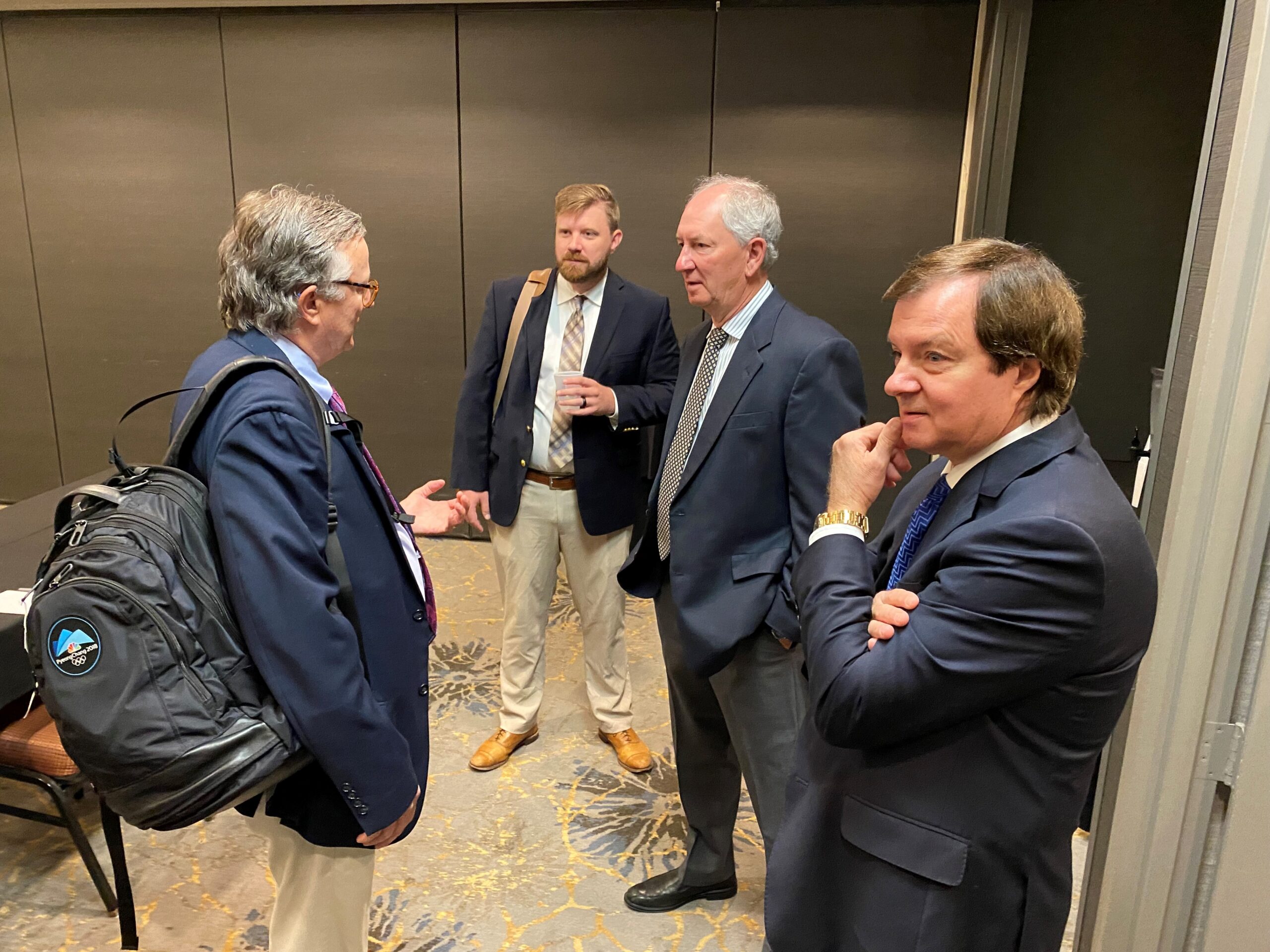
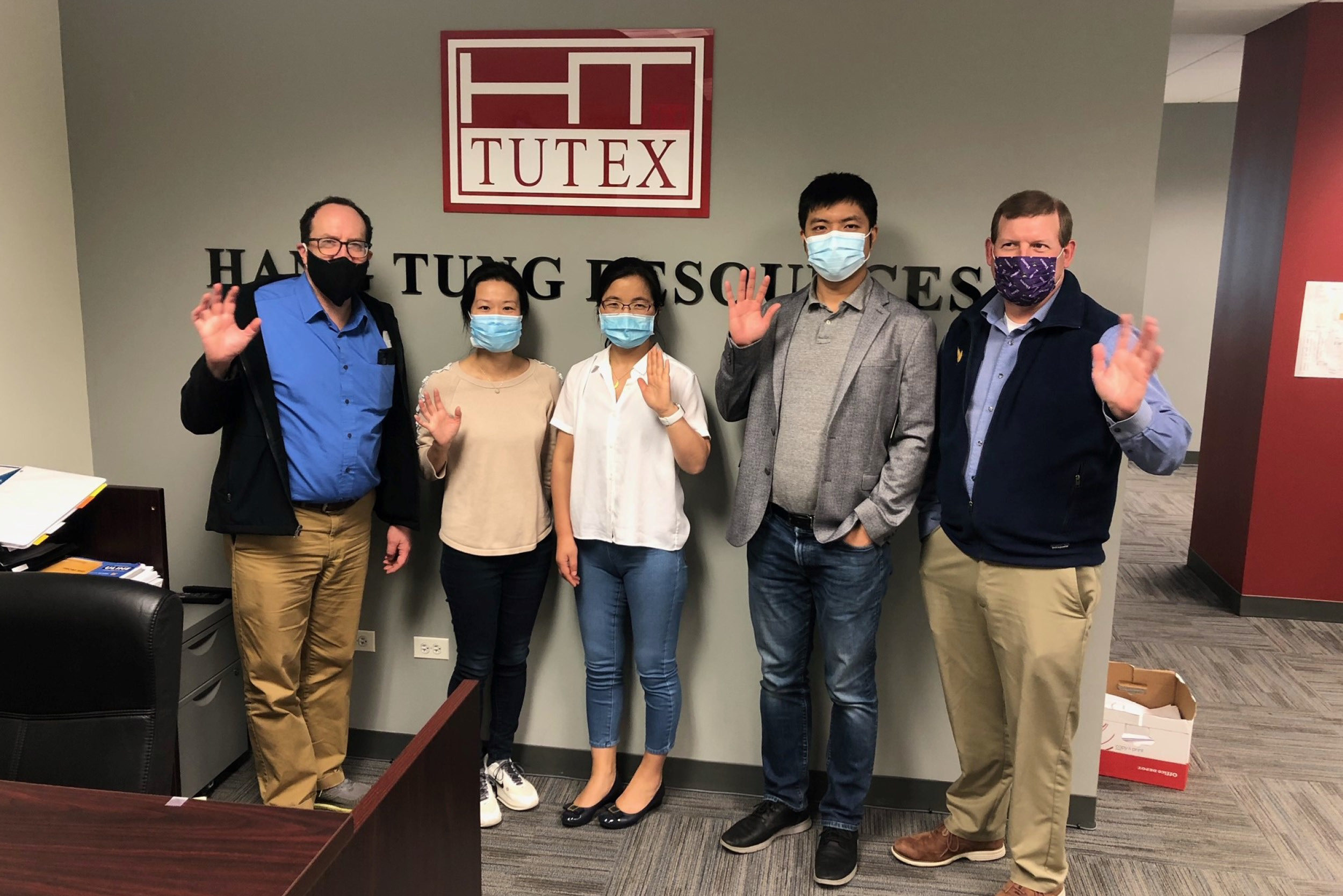
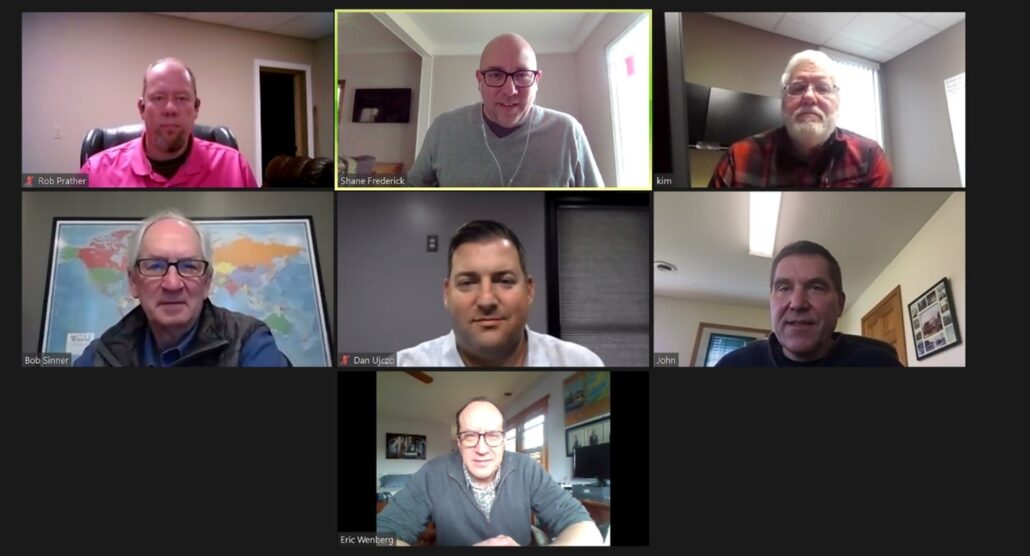 The Specialty Soya and Grains Alliance (SSGA) met with representatives of the Organic Soybean Processors of America (OSPA) on Wednesday to learn more about OSPA’s issues and have a conversation about how the two organizations might work together in the future.
The Specialty Soya and Grains Alliance (SSGA) met with representatives of the Organic Soybean Processors of America (OSPA) on Wednesday to learn more about OSPA’s issues and have a conversation about how the two organizations might work together in the future.

